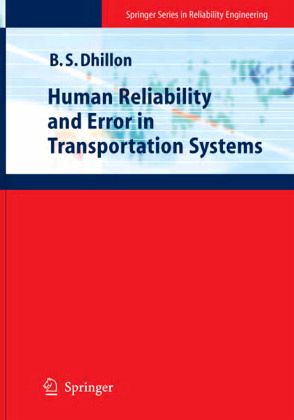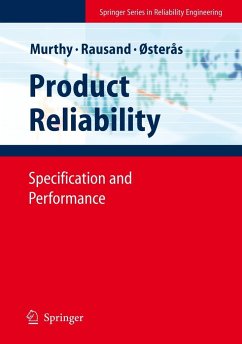
Human Reliability and Error in Transportation Systems
Versandkostenfrei!
Versandfertig in 6-10 Tagen
76,99 €
inkl. MwSt.
Weitere Ausgaben:

PAYBACK Punkte
38 °P sammeln!
Each year billions of dollars are being spent to develop, manufacture, and operate transportation systems such as aircraft, ships, trains, and motor vehicles throughout the world. During their operation thousands of lives are lost annually due to various types accidents. Needless to say, approximately 70 to 90 percent of transportation crashes are the result of human error to a certain degree. Moreover, it may be added that human errors contribute significantly to most transportation crashes across all modes of transportation.Human Reliability and Error in Transportation Systems is the first b...
Each year billions of dollars are being spent to develop, manufacture, and operate transportation systems such as aircraft, ships, trains, and motor vehicles throughout the world. During their operation thousands of lives are lost annually due to various types accidents. Needless to say, approximately 70 to 90 percent of transportation crashes are the result of human error to a certain degree. Moreover, it may be added that human errors contribute significantly to most transportation crashes across all modes of transportation.
Human Reliability and Error in Transportation Systems is the first book to cover the subject of human reliability across all types of transportation system. The material will be accessible to readers with no previous knowledge in the field, and is supported with a full explanation of the necessary mathematical concepts together with numerous examples and test problems.
Human Reliability and Error in Transportation Systems is the first book to cover the subject of human reliability across all types of transportation system. The material will be accessible to readers with no previous knowledge in the field, and is supported with a full explanation of the necessary mathematical concepts together with numerous examples and test problems.













